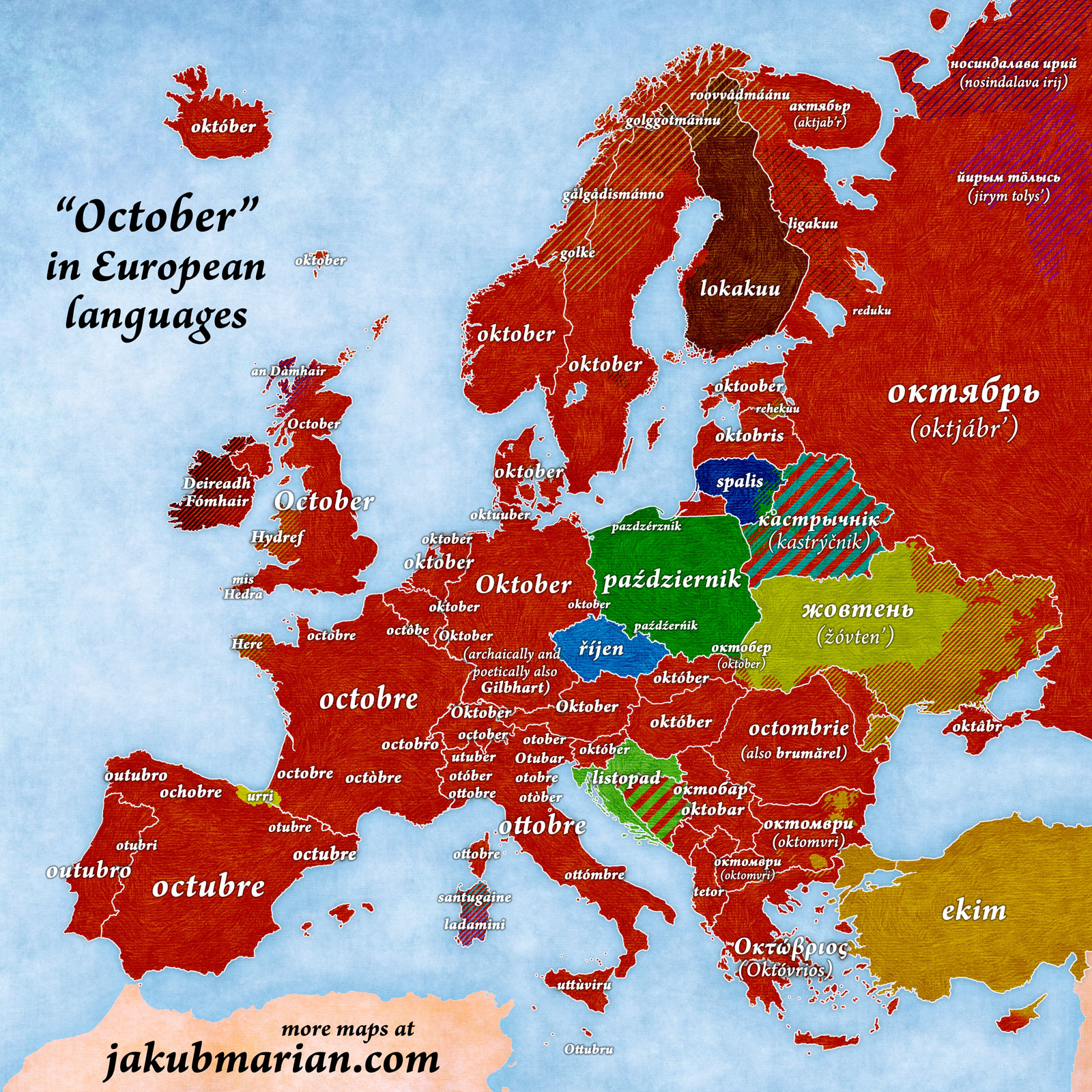In the Roman calendar, the year began with March, not January, so October was the eighth month of the year—hence the Latin name october, from octo, “eight”. Words sharing the same etymology are shown on a red background on the map below (other etymologies are explained below the map):

Polish październik comes from paździerz = “hemp or flax shives”, which used to be produced in October. Belarusian kastrýčnik is derived from kastra, which also refers to “hemp and flax shives”. Lithuanian spalis is derived from spaliai, yet another word for “flax shives”.
Ukrainian žóvten’ is a month of “yellowing” of trees. Czech říjen derives from říje, “rut” (rutting period of animals). Croatian listopad literally means “leaves-fall”, i.e. “the month of falling leaves” (but the same word, “listopad”, means “November” in Polish and Czech).
Turkish ekim means “sowing”. Albanian tetor is derived from the Latin name by replacing octo with tet(ë) (“eight” in Albanian), which, however, ultimately comes from the same Proto-Indo-European root as octo.
Irish Deireadh Fómhair can be translated as “end of autumn” or “end of harvest”. Welsh Hydref literally means “autumn” and is likely derived from hydd (“stag”) + bref (“lowing; bleating”). Breton Here and Cornish Hedra are derived from the same root. Scottish Gaelic dàmhair means “rut” (rutting period of animals).
Sardinian santugaine (sometimes also spelled Santu Gaine or Santu ‘Aine) is derived from the name of Saint Gavinus, a Sardinian martyr; ladamini comes ultimately from Latin laetāmen (“dung, manure”) because October used to be the month of fertilization of fields.
Finnish lokakuu, Karelian ligakuu, and Veps reduku literally mean “mud month” or “dirt month”. Võro rehekuu means “threshing month”. Northern Sami golggotmánnu means “rut month” (and the corresponding words in most other Sami languages are likely cognates). Komi jirym tolys’ probably means “cold weather month”.
 Tip: Are you a non-native English speaker? I have just finished creating a
Tip: Are you a non-native English speaker? I have just finished creating a  Web App
Web App
